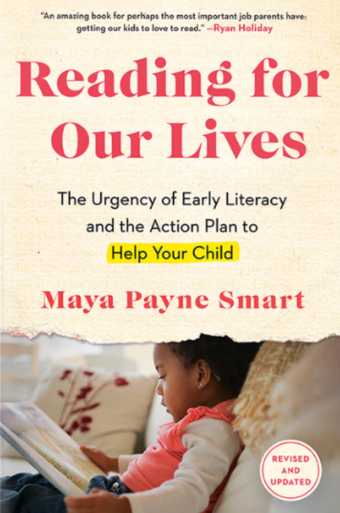At a recent “Science Café” at the YWCA Southeast Wisconsin’s OECI Office in Milwaukee, I skipped the stats and studies. These gatherings aim to spark dialogue on science or medicine, but I opened my discussion of the science of reading with stories—my own path to reading, and an invitation for parents to reflect on theirs.
Why? Because what truly motivates parents to act on behalf of their children isn’t data—it’s feelings. The strong desire to nurture a bright reading future for our kids often stems from our own reading experiences, whether joyful or painful.
All Reading Memories Matter
Many writers get nostalgic about their love of books—cherished stories, favorite authors, endless hours in libraries. I’m no exception. In my book, Reading for Our Lives, I share how reading shaped me so deeply that, like my parents before me, I named my daughter after an author.
But not every reading memory is so fond. Many parents recall the sting of stumbling through a passage in class, the ache of leaving book fairs empty-handed, or the frustration of staring at words that just wouldn’t make sense.
But the good news is: Whatever your story, it can fuel your child’s in a good direction.
Take a moment to remember: Was reading easy for you? Hard? What emotions surface—joy, shame, pride, isolation, excitement? Then ask yourself: What feelings do I want my child to carry into their future? Twenty years from now, how do I hope they’ll describe their journey?
With those answers in mind, you can begin shaping experiences that move them in that direction—choosing the books, planning the library visits, weaving conversation into daily life. You don’t control every step of their journey, but you have more influence than you may realize. Small, intentional choices add up to lasting impact.
If reading was hard for you, that struggle can spark vigilance—watching closely for difficulties, seeking resources early, and ensuring your child gets help you may not have had. This matters, especially since challenges like dyslexia can run in families.
And if you loved reading, you can pass on that joy—recreating the warmth of shared stories and library visits—while remembering your child’s journey will look different, shaped by new times, new tools, and their own personality.
The Gift of Struggle
Every reader—child or adult—faces challenges along the way. What matters is how we frame those moments.
Struggle, effort, and frustration are not detours in your child’s literacy journey. They’re the very path to growth. And when those moments come, your own reading story becomes a powerful tool for connection and encouragement.
Pam Allyn, a longtime educator and literacy advocate, put it this way in a podcast: “I make time every day to struggle as a reader, and that’s because I’m a confident reader.” Her insight reveals that reading confidence isn’t the absence of struggle, but the willingness to face it.
That’s why your reading history matters. When your child stumbles through a passage or grows frustrated with a new book, share more than your love of reading or your hopes for your child. Share your own confusion, your persistence, and your eventual breakthroughs. By revealing both your reading struggles and your growth, you model resilience. You show that difficulty isn’t shameful—it’s simply part of every reader’s journey.
And when you acknowledge and honor your child’s feelings—frustration, fear, excitement—you validate their experience and give them courage to continue. In doing so, you help them see effort not as a barrier, but as a bridge to strength.
What Research Tells Us
Studies confirm what experience suggests: parents’ literacy histories shape how they support their children. For some, early reading struggles spark determination. For others, those struggles erode confidence, leaving them unsure of how to help.
How parents feel about reading also matters. If you see it as entertainment, you may focus on joy and fun. If you view it as a skill, you may emphasize practice and progress. If you see it as an opportunity, you may seek out schools, libraries, and enrichment programs. Each approach is shaped by personal history and perspective.
The key is awareness. Reflect on your own story:
- Your early childcare or preschool experiences
- Your formal education from kindergarten onward
- Your family’s literacy traditions
- Any mismatch between your school’s approach to literacy and your home environment
All of these threads weave together into your current outlook and, consciously or not, influence how you guide your child.
I know this firsthand. My own love of literature, being named after an author, and later naming my daughter after one all contributed to the intensity I brought to raising her as a reader. My history shaped my priorities.
The question, then, is not whether your literacy story influences you—it does. The question is: Will you let it guide you unconsciously, or will you use it intentionally? The more aware you are, the more you can choose to replicate positive experiences, rewrite negative ones, and create a reading journey for your child that builds both skill and joy.
Your reading story, with all its triumphs and struggles, is a gift ready to be unpacked and shared.
Get Reading for Our Lives: The Urgency of Early Literacy and the Action Plan to Help Your Child
Learn how to foster your child’s pre-reading and reading skills easily, affordably, and playfully in the time you’re already spending together.
Get Reading for Our Lives

